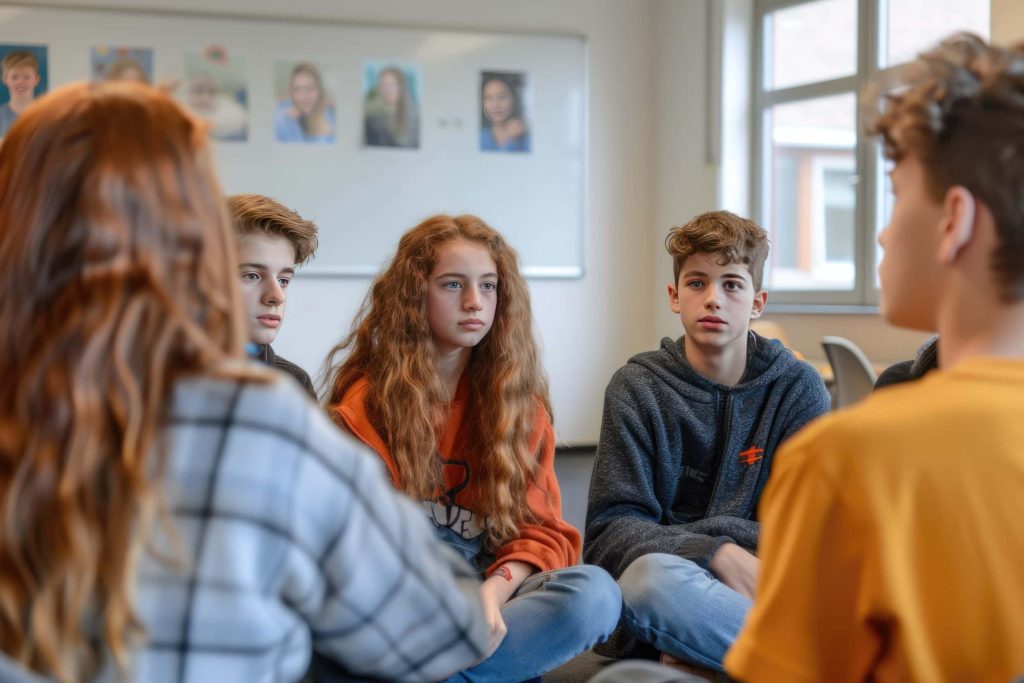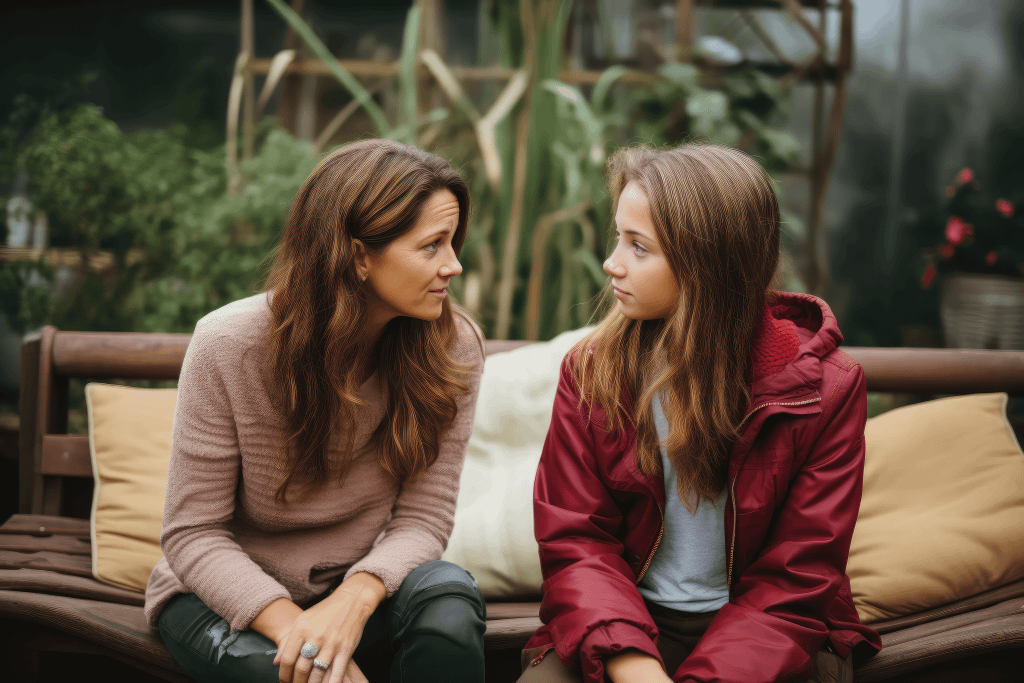You’re exhausted, heartbroken, and out of options
The defiance has become relentless.
The anger feels explosive.
Maybe your teen is withdrawing completely, breaking rules without remorse, or engaging in risky behaviors that leave you sleepless with worry.
You feel like you’re walking on eggshells in your own home, and the child you know and love seems to be slipping away.
You’re exhausted, heartbroken, and asking yourself a question you never before considered: What do I do with my out-of-control teen?
If this is your experience, please take a breath and know this: you are not alone, and you have not failed as a parent. You are in an incredibly difficult situation faced by millions of families.
Reaching a crisis point isn’t the end of the road; it just means it’s time to look for a different path. Acknowledging that you need help is the first, bravest step toward healing for both your child and family.
Where can I send my troubled child?
When things at home feel rocky, it’s natural for parents to search for outside help. And the internet is filled with options—there are literally millions of sites offering “help for troubled teens”—which can make the search overwhelming and confusing.
You’ll find boot camps, wilderness therapy, special schools, and various residential programs. Let’s break these down so you can make an informed choice that is best for your child and family.

Teen Boot Camps
These highly structured, military-style environments designed to instill discipline—can be appealing to a parent who feels like they’ve lost all control of their adolescent.
Boot camps focus on compliance, strict rules, and physical challenges.
The research-backed reality of boot camps
Research has shown that while boot camps can force short-term behavioral changes through fear and intimidation, these changes rarely last.
These programs are largely ineffective for long-term change because they don’t address the underlying issues driving the behavior, such as trauma, depression, or anxiety.
They break a teen’s spirit, not the cycle of their struggle.
Wilderness Therapy Programs
Wilderness therapy programs remove a teen from their current environment and use nature and challenging expeditions as therapeutic tools.
They focus on building resilience, teamwork, and self-esteem under the guidance of licensed therapists.
- Research-backed reality: Studies have shown positive outcomes for some teens, especially in reducing defiance and improving self-awareness. The unfamiliar, distraction-free environment can make even resistant teens more open to therapy. However, the success of these programs is highly dependent on the quality of the clinical staff and the teen’s transition back to their home environment. They can be a powerful catalyst for change but often require follow-up care.

Therapeutic Boarding Schools
Therapeutic boarding schools are long-term programs (often 9–12 months or more) that combine accredited academics with ongoing therapy.
They offer a stable, structured environment for teens with persistent emotional or behavioral issues that interfere with school.
- Research-backed reality: For teens who need both academic and therapeutic support over a long period, these schools can be effective. They provide consistency and integrated care, allowing teens time to address deep-seated issues. Primary considerations for parents include the long-term separation, the need to confirm the validity of the school’s therapeutic model, and the ability to prioritize family involvement.
Residential Treatment Centers
Residential treatment centers (RTCs) offer programs (typically lasting 30–90 days) designed for teens who need intensive but shorter-term care. They offer a higher level of clinical care than other options, with a focus on stabilization, comprehensive assessment, and evidence-based therapies in a safe, contained environment.
- Research-backed reality: Research shows that high-quality, accredited RTCs are highly effective for teens with serious mental health challenges, including severe depression, anxiety, trauma, and substance use. The immersive, therapeutic environment allows clinicians to address the root causes of behavior and equip teens with concrete coping skills. Family involvement is a critical component of successful programs.

The difference that matters: Punishment vs. therapy
As you can see, the options vary widely. The most crucial aspect to consider is a program’s core philosophy. Punitive approaches like boot camps operate on the belief that a teen is “bad” and needs to be broken or harshly disciplined.
In contrast, therapeutic approaches—like those found in high-quality RTCs and other clinical programs—operate on the understanding that a teen is hurting. Their “out-of-control” behavior is seen as a symptom of underlying pain. The goal isn’t to punish the behavior away but to heal the source of the pain so the behavior is no longer necessary. This is the foundation for lasting, meaningful change.

A path to healing at Avery’s House
At Avery’s House, we know your child is not a “troubled teen”; they are a teen in trouble, struggling with immense pain. We provide effective treatment programs built on a foundation of compassion, clinical excellence, and family healing. We don’t just wipe out difficult behaviors; we are curious about their causes. We work to understand what’s driving your child’s anger, defiance, or withdrawal.
Through evidence-based therapies like CBT and DBT, we help teens struggling with trauma, anxiety, and depression to develop real-world coping skills. Our small-group setting ensures that no child gets lost in the crowd, and our deep commitment to family therapy means you are a partner in this process every step of the way. We’ll help you rebuild the connection that feels so lost right now.
You don’t have to navigate this crisis alone. You don’t need a program that punishes your child; you need a partner that helps you heal your family.
When you’re at your wit’s end, let us be your first step toward hope. Contact Avery’s House today to speak with someone who understands and can help guide you through your options.